Posted on 9/26/2022
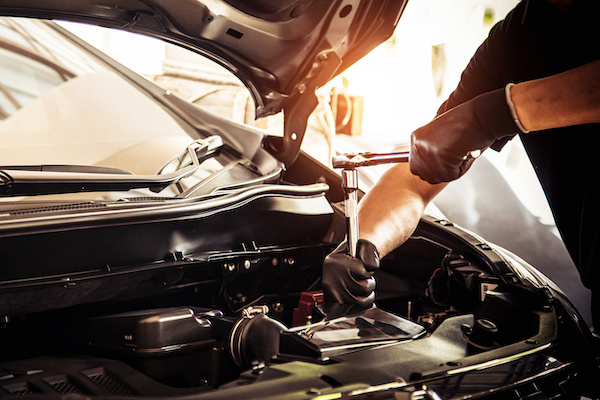
Most people are aware of the importance of having regularly scheduled service appointments for their vehicles. But what happens if you miss a vehicle service? Find out in this article! What Happens if I Miss a Vehicle Service? If you miss a vehicle service, the most likely scenario is that nothing will happen. Your car will continue to run perfectly fine, and you may not notice any issues for some time. However, eventually, your vehicle will start to experience problems. It's important to remember that regular vehicle maintenance is not just about keeping your car running smoothly. It's also about preventing big problems down the road. By getting your vehicle serviced on a regular basis, you can avoid expensive repairs and keep your car running great for many years to come. Will the Vehicle Break Down? If you miss a vehicle service, there is a possibility that your car will break down. However, this is not always the case. Sometimes, people miss vehicle services and their ... read more
Posted on 8/28/2022
.jpeg)
Vehicle batteries are an essential part of the electrical system. It stores all the power to start your engine, power your phone charger, and keep your car rolling. That’s why it’s so important to know when to replace your battery and how to extend its life. On average, car batteries last between 3 and 5 years. Depending on the climate you operate your vehicle in, your battery may die sooner or later. To be specific, batteries are prone to drain quicker in the heat. The warmth causes the chemicals in your battery to evaporate quicker, which can ultimately damage the entire battery. For instance, drivers in Florida or Georgia may need to change their car battery sooner than those in Alaska. Regardless of temperature, let’s take a look at some things that all drivers can do to extend the wear on their vehicle battery: 1) Limit Short Trips Too many frequent trips of short duration drives can do more harm to your car battery than you think ... read more
Posted on 7/26/2022
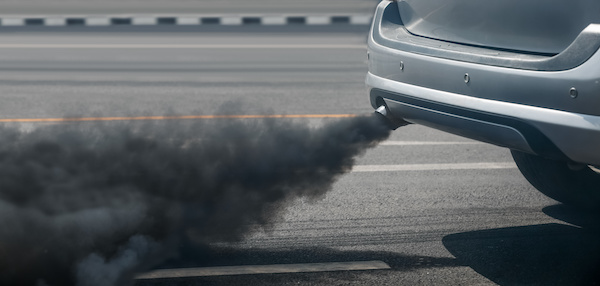
Have you noticed smoke coming from your tailpipe when you start your car in the morning? No need to worry. It's just water vapor from condensation in the exhaust system that has gathered overnight. But if you notice a cloud of smoke billowing from the tailpipe, it should be a cause of concern. Knowing the smell and color of the smoke can help you understand the cause. Common Cause of Car Smoke Car smoke can be caused when motor oil or other fluids leak or spill due to a defective seal or gasket onto the hot engine or your car's exhaust system. These other fluids that may leak include engine coolant, transmission, power steering, and brake fluid. Window washer solvent may also leak. Significance of Different Smoke Colors White smoke – white smoke could indicate engine trouble. Maybe a cracked engine block, cracked cylinder, a leaking head gasket, or a coolant is getting sprayed onto the combustion chamber. A sweet smell from the coolant usually accompanies the smoke. H ... read more
Posted on 6/29/2022
.jpeg)
With summer finally here, there are 3 things that you need to worry about when going on a road trip: traffic, heat, and large crowds. Now that travel restrictions have significantly loosened up compared to last summer and the summer before, you’re going to need to prepare like never before. Here are several things to consider: Summertime is the peak season for travel after all. However, it can get even busier on the weekends and around holidays like the 4th of July. If you want to avoid extra traffic, we recommend hitting the road on a weekday. Also, the sooner you hit the road, the better. We get that you have to beat the heat with sunscreen, lighter clothes, etc. Consider your car too. Heat can be extremely taxing on your vehicle’s critical systems and can cause your car to overheat. Make sure you get the maintenance you need, including: Oil change Brake service Cooling system service Windshield washer replacement Battery check Belt and hose inspec ... read more
Posted on 5/26/2022
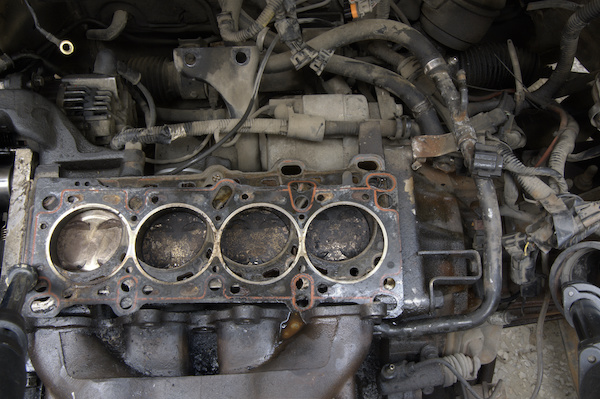
Your vehicle's engine is protected by the head gasket. This gasket between the cylinder block and cylinder head (when working properly) prevents fluids from entering the cylinders causing issues with your motor. What happens when the head gasket doesn't work properly? What are the signs of a head gasket leak? When your head gasket isn't working properly, it has a leak. In other words, it's not doing its job of keeping fluids such as oil or coolant from getting in the cylinders and damaging the cylinder block, with coolant being the usual culprit. This is often referred to as "blowing" the head gasket. Signs Your Head Gasket is Leaking There are signs that you have an issue with the head gasket. These include: White smoke from the tailpipe is a sign that your head gasket is letting coolant leak into the cylinder block. If you notice bubbling sounds coming from your radiator or coolant reservoir, that is another sign the head gasket has a leak. The bubbling ... read more
Posted on 4/27/2022
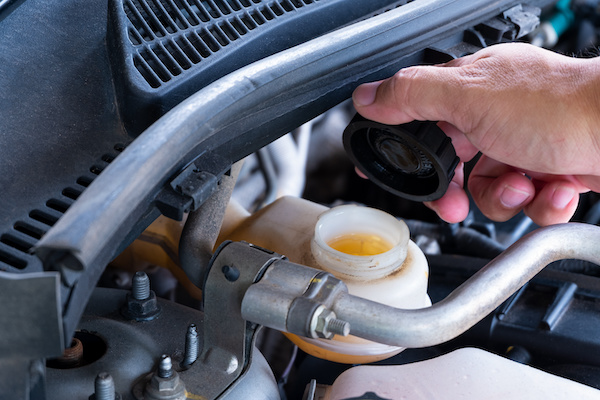
Your car's brake fluid is one of your vehicle's most critical braking system components. When your car's brake fluid is low, your brake system is at risk of failing. The low level of brake fluid could result from many different factors. For example, it could be a symptom of a more significant problem with your car's brake system. Here are signs that may mean your car's brake fluid is low. Your Brakes Are Slipping If your brakes are feeling spongy, they may be losing grip. You may experience a much heavier feel when you press on the brake pedal when this happens. This signifies that your brake fluid level is low. Your Wheels Are Spongy A spongy feeling to your brakes could signify a low brake fluid level. A spongy feel to your brakes could also suggest that your brake pads need to be replaced. Your Brakes fluid is dirty. Dirty brake fluid could indicate a leaky brake caliper. If your brake fluid is dirty, you should have it inspected as soon as possible. Dirty ... read more
Posted on 3/28/2022
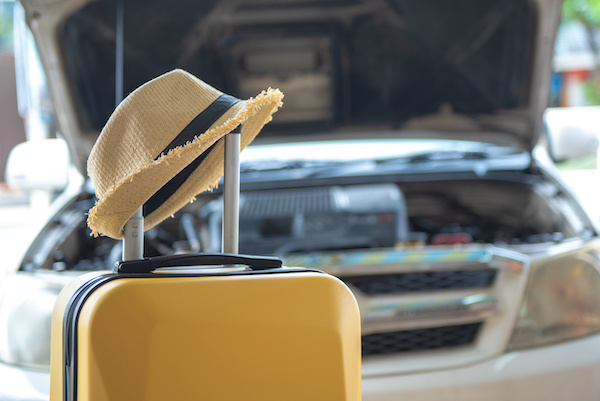
Planning a road trip any time soon? We believe that the most important pre-trip measure you should take is a vehicle inspection. If you're heading out on the road for a long drive, the last thing you want is to be stranded in the middle of nowhere with a vehicle issue. Getting your car looked at is great for your peace of mind as well as your safety on the road. Before you embark on your trip, a vehicle inspection is highly recommended. A pre-trip check will inspect all safety components and major parts of your vehicle to ensure that your car is running at its best. This includes the braking system, your car battery, tires, fluids, filters, and more. If an issue is found, we will inform you of the severity of the issue and what problems it can cause on a road trip. If your vehicle does need service or repair, we will be sure to perform the fix quickly so that you can be on schedule with your trip. We recommend having your vehicle inspected at least a week before your trip - just ... read more
Posted on 2/28/2022
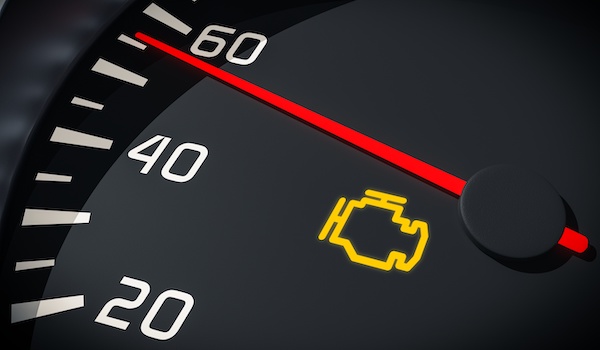
When your check engine light comes on, the first thing to remember is NOT to panic. The next thing you should check is the warning light's behavior. If the light is blinking, it is a much more serious problem that requires you to pull over and call for a tow. If the light is steady, you can proceed to drive for a short period. Nonetheless, you should check for a problem by starting with the gas cap. If there are no problems with your gas lid, you most likely need to take a visit to an auto repair shop for engine diagnostics. What Does It All Mean? The check engine light can mean many things, from a loose gas cap to a damaged misfiring engine. The check engine light is crucial for your automobile's onboard diagnostics system. Over the last few decades, computers increasingly have had a more prominent role in monitoring vehicle performance and regulating the variables involved, including ignition timing and air-and-fuel ratio. When the check engine warning comes on your dashbo ... read more
Posted on 1/21/2022
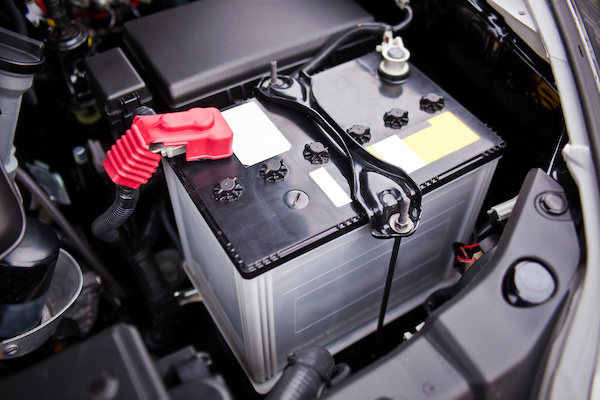
Your car battery needs to be in good working condition to start your engine. The battery is also responsible for providing a charge to all the electronic components in the car (radio, lights, power seating, electrical power steering, etc.). When your battery gets weak, you will likely notice some apparent indications. The lifespan of the average car battery can be up to 5 years. Depending on your battery model and usage, it may last longer or die out sooner. Top Symptoms of a Dying Battery 1. Trouble Starting Car - This is typically the most obvious sign that you need to get your battery. 2. Flickering/Dimming Lights - Another characteristic of a weak-growing battery is that your lights may look dimmer than usual. They may also start to flicker. 3. Dashboard Warning Light -The battery dashboard warning light is one you can't miss. It is usually red and depicts the outline of a car battery, and it is put in place to warn you when there is a persisting problem with the el ... read more
Posted on 12/20/2021

Defensive driving is just a coined term for the performance of safe driving practices on the road. If you frequently drive daily and through heavy traffic, defensive driving is a great way to save yourself from tragic accidents. Defensive driving can start before you even get on the road. For instance, you can plan for your drive by looking up the weather and road conditions. Here are some other ways you can execute defensive driving: Check your mirrors periodically while you drive to be aware of the other vehicles around you. Be considerate and allow plenty of space for other vehicles to switch lanes. Switching lanes amid traffic can be dangerous, and trying to fight others trying to do it puts you at an increased risk of a vehicle accident. If you want to change lanes yourself, don't forget to use your signals. Maintain a safe distance between you and the vehicle in front of you, just in case you have to brake abruptly. Be on the lookout for aggressive drivers who may n ... read more